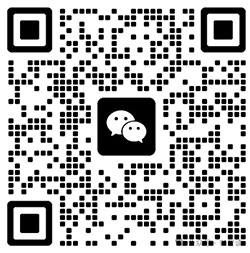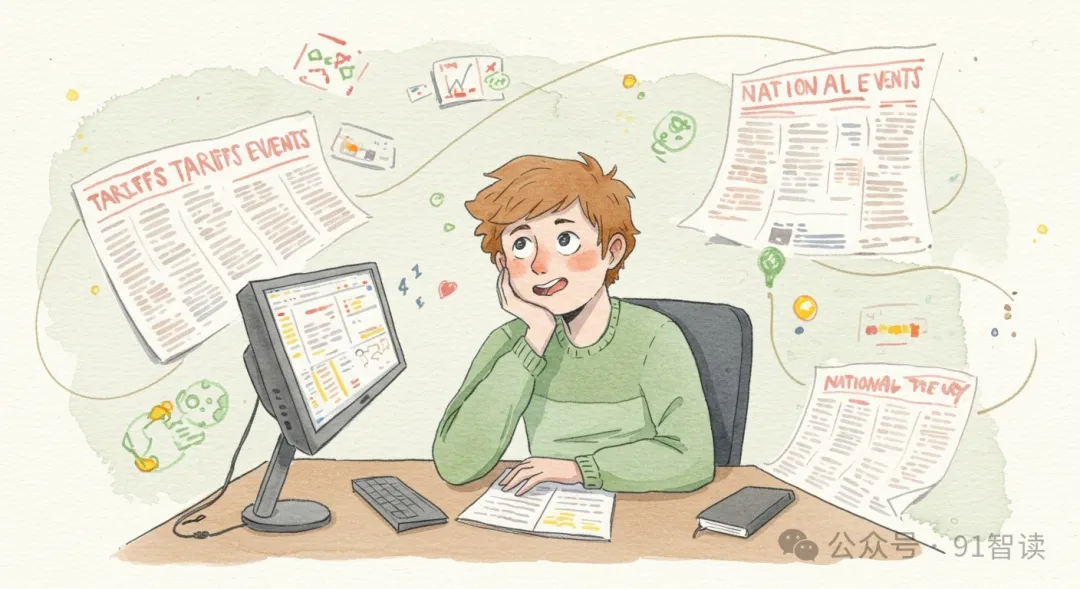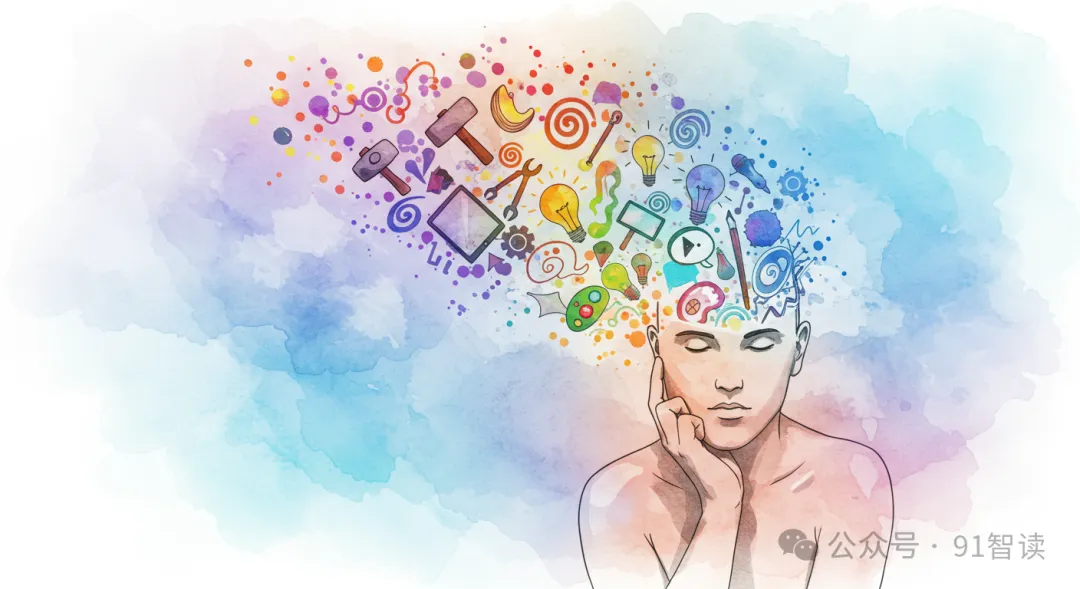These 3 Growth Barriers: How Long Have They Been Holding You Back?
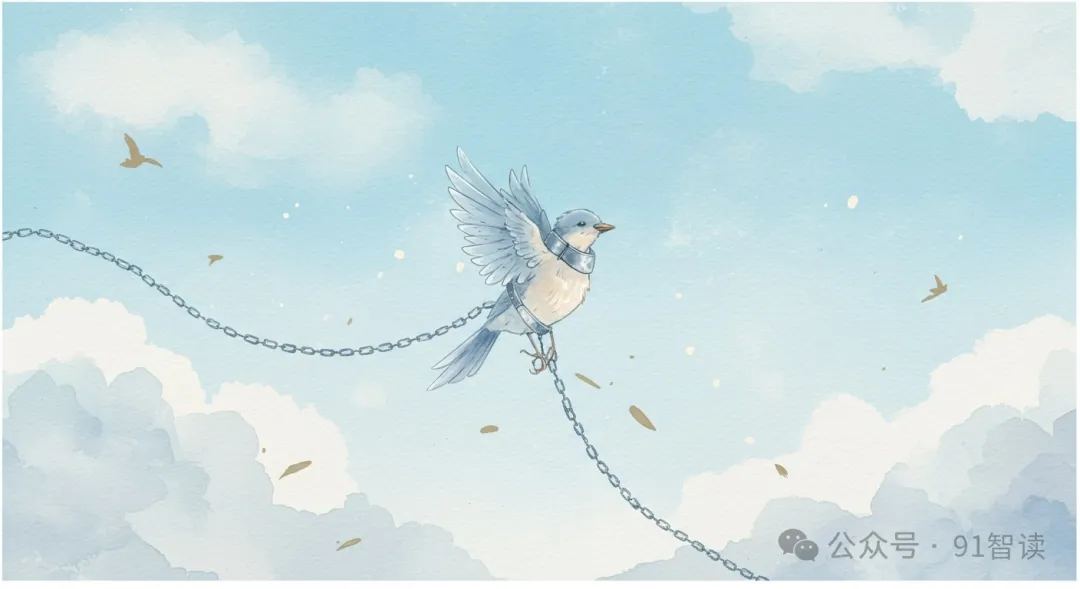
“How can I improve my personal abilities?” This is a question I’ve been pondering for years. But before pursuing improvement, we need to clarify: what is ability?
I define ability as: the probability of achieving goals when doing things or solving problems.
It’s not an abstract concept, but a probability demonstrated through action, closely related to your decisions, efforts, and attitudes.
For example, “Xiao Ming has strong coding skills” actually means “there’s a high probability that his code has fewer bugs and better meets requirements”; “Old Wang has strong negotiation skills” means “he has a higher probability of achieving goals through communication.”
However, in modern life, many people are unwittingly trapped in three major “ability pitfalls”: ability illusion, collection addiction, and scattered focus. These issues not only mislead our perception of ability but also quietly erode our time and energy. How many of these have affected you?
1. Ability Illusion: Are You Really That Strong?

Ability illusion is when you feel something is your ability, but it’s not entirely yours.
The Illusion of Tool Empowerment
In the internet age, browsers give us access to vast information, search engines help us find answers, and paid knowledge services let us purchase courses.
But these aren’t your abilities—they’re illusions granted by tools. Without the internet, how many problems could you still solve?
The Misconception of Collective Dividends
During China’s 40 years of reform and opening up, the dividends of the era benefited various industries. As long as you weren’t too far off track, most people in state-owned or private enterprises could reap material and spiritual rewards.
But this is more an amplifying effect of collective development, not your true individual strength. Strip away these enhancements, and how much of your ability remains?
The truth is: Abilities need to be tempered through practice. External enhancements are just magnifying glasses; the core is still your own refinement.
2. Collection Addiction: The More You Own, The More You’re Enslaved
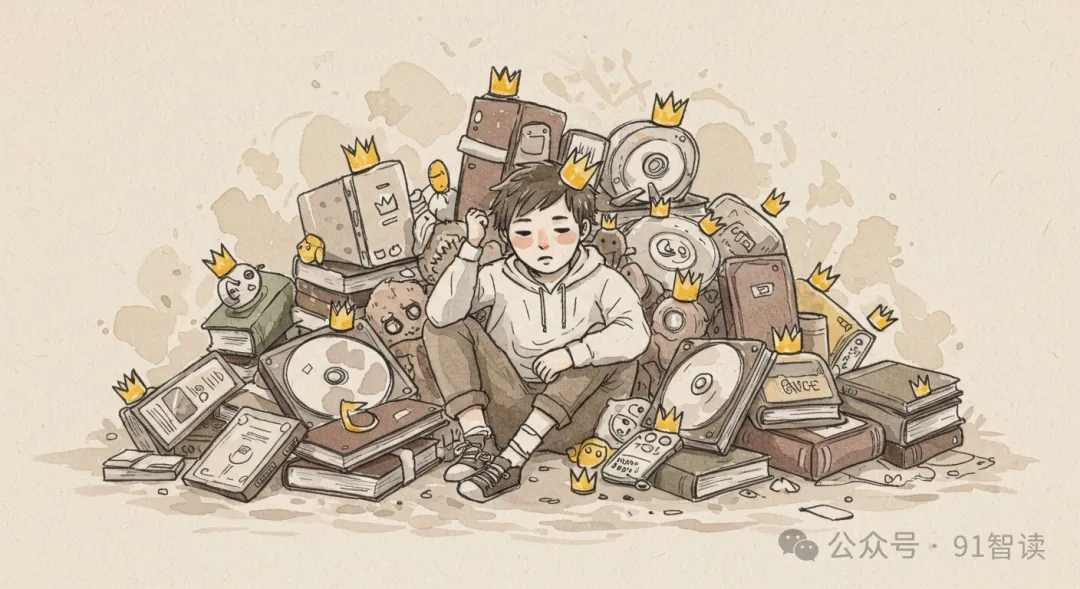
“The more things you own, the more you become a servant to these things.” — Qiu Ge
The Reversal from Master to Servant
I once bought a “North American black walnut mortise and tenon bookshelf” that I had desired for ten years. The result? I spent every week maintaining it with walnut oil, dusting it monthly, and even being cautious about opening windows.
As a film enthusiast, I also purchased a NAS, buying increasingly larger hard drives, expanding from a 4-bay to an 8-bay system. I insisted on Blu-ray originals for movies and lossless collections for music, busy with version management, yet rarely truly enjoying the content.
Where was I the master? Clearly, I had become a servant to these “masters”!
Information and Knowledge as Masters
See a good article—save it; come across a good video—“watch later”; recommended books and courses—purchase them.
What’s the result? These resources cost time, energy, and money, yet they’re placed on a pedestal, while we contentedly feel we’ve “acquired” them.
This defeats the original purpose: they were supposed to serve us, so how did they become the masters?
Methods to break the cycle:
- When encountering good content, note down your thoughts and feelings, internalizing it as knowledge.
- When buying books, first check the table of contents; skip those with chaotic logic or try the electronic version first.
- For items you like, focus on using one thoroughly and daily to maximize its value, rather than serving too many “masters.”
- As the old saying goes: “With money, don’t buy half a year of leisure.”
3. Scattered Focus: Your Energy Has Been Stolen
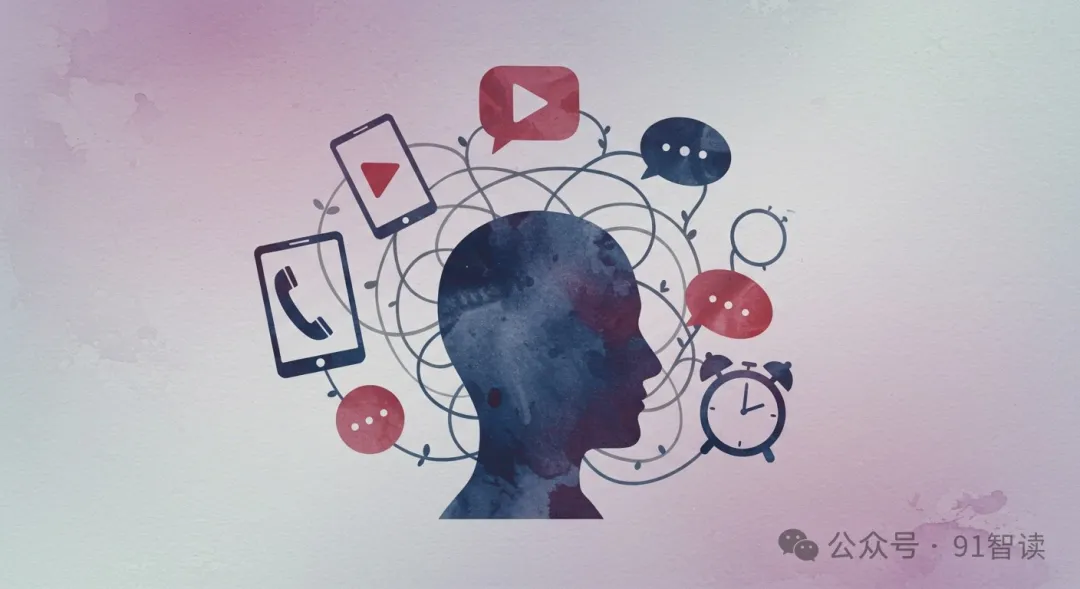
Money can’t buy time; having time doesn’t guarantee energy; having energy doesn’t ensure focus.
Focus is today’s scarcest resource. How long has it been since you’ve eaten, worked, or rested with complete concentration?
Unconscious Distraction
Short videos accustom us to 3-second switches, push notifications constantly interrupt our thoughts, social media seeks instant gratification… Our focus is thus dismantled, dispersed without notice, and we even enjoy the process. I call this “focus scattering.”
In my article “In the Age of Information Deluge, Will You Take Initiative?,” I mentioned methods to eliminate passive messages and improve information quality, but that’s not enough.
A Psychological Reminder
Research shows that multitasking reduces efficiency by 40%, with the brain exhausted from constant switching. Distraction has become the norm, while focus has become a luxury.
The key to reclaiming focus: Self-awareness. Try these steps:
- Open your phone’s “screen time” and look at the top three apps—can you uninstall two of them?
- Find the time of day when your energy is at its best—that’s the prerequisite for focus.
- Schedule the most important tasks during this period, turn off notifications, and focus on completing one task at a time.
Be Your Own Master
Ability illusion leads to misjudging one’s strength, collection addiction disperses energy, and scattered focus is the combined negative result of the first two. These three intertwined factors have become the biggest obstacles to ability enhancement for modern people.
Recognize the illusions, let go of obsessions, reclaim your focus—only then can information transform into knowledge, and knowledge be tempered into ability.
To quote a saying of unknown origin: “The happiest thing is to eat mindfully when it’s time to eat, and sleep peacefully when it’s time to sleep.”
May you be your own master, eating mindfully, sleeping peacefully, and living contentedly ❤️
👇Scan the QR code with WeChat, follow “91智读” for daily updates and grow together.
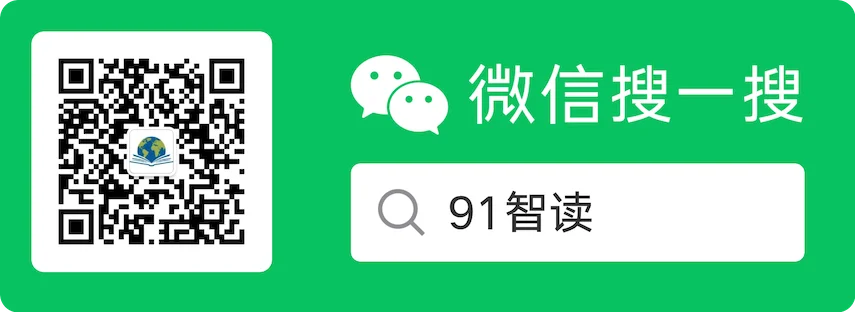
👇Feel free to add me on WeChat to share stories about personal growth.
